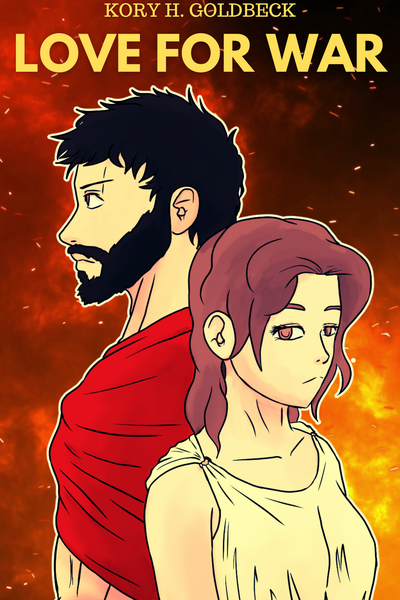Hope for Tomorrow
Dec 11, 2023
It was on a crisp autumn morn that riders emerged breathless from mists, a wounded figure borne between them—Leonidas' cousin Achilles, sole survivor of an errant border clash. Tended swiftly by Helena's arts, Achilles' weary eyes fell upon Leonidas. Word had come, he rasped—Athens' new governance sought truer reconciliation. A summit was called to air grievances and forge lasting amends.
Leonidas knew this may be his lone chance at clemency, and return to the civilized world he so long avoided. Bidding a sorrowful farewell to Helena, who had given him purpose in darkness, Leonidas gathered his precious burdens and set out. The mountaintop lodge selected proved apt—strung high between cloud and eyrie, as if the gods themselves might bear witness.
Within, aged men sat grim-faced yet determined. When Leonidas entered bearing his tiny olive branch, quiet fell. Steeling himself, Leonidas spoke—of his guileless love cut short, the losses that found him exile and then refuge. But he had walked hatred's path and seen where it led—only to ever more dead homes and mothers weeping over sons.
His daughter Irena, blossom of their union, embodied hope that from war's ruins new growth could emerge. If he might build the future Elysia foretold in raising their child free of past conflict's shadow, would these leaders find it in their hearts to let love light a new road?
A rustle passed through the assembly. Elysia's father, aged beyond his turns but eyes still keen, stood slowly. So this was the man, he sighed—the defiant spark that lit his beloved daughter's final days with joy. And in this babe he saw traits of his lost child, still living. Turning to Leonidas, the old man smiled softly. You have endured much, warrior, and come before us with an olive branch rather than brand. That takes courage few possess. Your daughter may walk free and call any land her home. My enmity is no longer yours to bear.
As the gathered leaders echoed their assent, a weight seemed to lift from the valley and all within it. Tears of relief slid down Leonidas' cheeks as he embraced his child, now unchained by generations-old disputes. Hope had won out over hatred's last embers, and a new era of understanding was dawning at long last. Lead us into it, good sir, one elder bid gently. For its promise begins here with you.
And so beneath autumn's painted boughs, on the mountain where pasts were laid to rest, Leonidas took the hand of the man who had been his love's father and clasped it firm. Their joined hands were a pact, a blessing on their children yet to come. The wheel of vengeance had stopped turning—now was the season of forgiveness, of breaking new ground together where once were only scars. As he led his daughter down to greet their bright horizon, Leonidas knew in his heart Elysia smiled upon them, and that at last her dream was made real. The future was theirs to determine.
Creator
After a truce, Achilles and Hestia mediate the father's meeting, reminding them of lives lost to hatred. Reunited, Leonidas and Elysia name their child Irena, symbolizing the peace she brings.
Recommendation for you
-

Recommendation
What Makes a Monster
BL 70.4k likes
-

Recommendation
Silence | book 2
LGBTQ+ 29.4k likes
-

Recommendation
Primalcraft: Scourge of the Wolf
BL 6.3k likes
-

Recommendation
Invisible Boy
LGBTQ+ 10.7k likes
-

Recommendation
Tora
GL 1.4k likes
-

Recommendation
Silence | book 1
LGBTQ+ 24.3k likes
-

Feeling lucky
Random series you may like
460 views0 subscribers



Comments (0)
See all